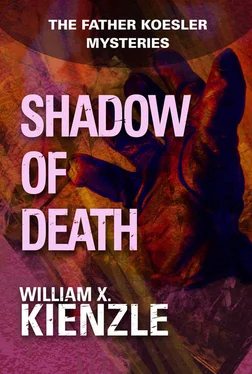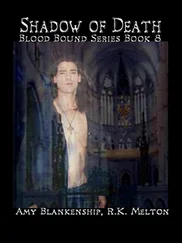“And all this,” contributed Singer, “against an incomparable historical backdrop.”
“Take Aida— please.” Delaney found it impossible to pass up a comic line. “It’s the open-air version staged at the Baths of Caracalla.”
“Where’s that?” Cox moved the map of Rome across the table toward Singer, who pushed aside his empty plate. Singer’s stomach was not as aesthetically picky as Delaney’s.
Singer located the Baths on the map just south of the Colosseum. Singer, who had been a sportswriter before moving to the travel desk, was being groomed for his own column, the dream of most journalists. One position he probably never would occupy was that of restaurant critic. An omnivore, he constantly fought a weight problem.
“This is the Aida, ” Delaney resumed, “with its armies of Egyptian warriors, its crowds of Ethiopian slaves, and herds of live animals.”
“Elephants?” Cox swirled the coffee in his cup.
“Elephants,” Delaney confirmed. “Then there’s Tosca. ”
“Ah, Tosca! ” Cox clapped his hands and raised his eyes heavenward in mock rapture.
“You’re really in luck, you turkey.” Some manifestation of envy was beginning to creep through Delaney’s usually bland demeanor. “This presentation is billed as an ‘itinerant Tosca. ’ They stage the opera at the actual places where the libretto sets it. So, for Act I, Mario Cavaradossi will meet Floria Tosca in front of the Church of Sant’Andrea della Valle.”
Cox leaned toward Singer, whose finger moved to the site of Sant’Andrea della Valle on the Corso Vittorio Emanuele.
Satisfied, Cox returned attention to Delaney.
“Then, in Act II, the singers, orchestra, and audience will have moved to the Farnese Palace, where, in the Piazza Farnese, Tosca will confront and kill Baron Scarpia while Mario is being tortured and imprisoned.”
Cox inclined toward Singer, whose finger moved around the corner from Sant’Andrea della Valle to the nearby Piazza Farnese.
Back to Delaney.
“Finally, after another quick bus trip with perhaps a snack and a little vino, all will gather at the Castel Sant’Angelo where Mario is executed and Tosca leaps over the battlement to her tragic death.” Delaney slumped slightly in empathy with Floria’s fate.
Cox consulted Singer, who located the Castel Sant’Angelo near the bank of the twisting Tiber.
“What about the movies?” Cox probed hungrily.
“What else, you lucky dog, but a film festival!” said Delaney.
“A film festival!”
“Yes. Everything from about thirty American silents to Last Tango, the film that made Pauline Kael famous, to a collection of cinema verité, a clutch of contemporary classics, a Hugh Leonard retrospective—and a special showing of Abel Gance’s Napoleon. ”
“Napoleon?”
“Yes, with the final scenes shot à la Cinerama some twenty-five years before Lowell Thomas commercialized the process.”
“Say, Joe . . .” Singer nibbled on a breadstick he had liberated from the basket before the waiter had cleared the table, “have you given any thought to work while you’re in Rome?”
“Work?”
“Yeah,” Delaney leaned forward for emphasis, “that for which the Freep is sending you to the Eternal City. I’ve given you more than enough entertainment material—and George has given you expert directions on where to find it—to keep you busy for your entire stay in Rome.”
Something was up. Cox sensed it. Something about his companions’ expressions. Cox slowly turned in his seat. Suspicion confirmed. Standing directly behind their booth was Nelson Kane, city editor of the Detroit Free Press, and Joe’s immediate superior.
“Uh,” Cox cleared his throat, “hi, Nellie. How long you been here?”
“Long enough.” Kane, in light raincoat and Irish slouch hat pulled low on his forehead, was obviously returning from lunch. “Stop by my desk when you get a chance, Joe. Like now.” He turned and headed for the bank of elevators.
Cox turned to his now grinning companions. “Thanks. Thanks a lot. I needed that.” He rose to leave.
“Don’t forget this.” Singer handed Cox the check.
“Didn’t you forget something else?” asked Delaney, as Cox accepted the slip and turned to go.
“What?”
“The tip.”
Cox consulted the check, then grudgingly let a dollar flutter to the table. He could hear the others snickering as he headed for the register to settle accounts.
Joe Cox was the nonpareil of the Free Press city room. His resumé boasted a Pulitzer Prize. His work was uniformly workmanlike to excellent. He was the type of reporter who was a constant challenge to the Detroit News. Yet, possibly because he was so very good at what he did, and because he was very aware of that fact, there was a subtle touch of adolescence about him. From time to time, he required a figuratively short leash.
Usually found holding the other end of that leash was Nelson Kane. Now in his mid-forties, tall, balding, heavyset but not fat, Kane was that clichéd but authentic creature, a newspaperman’s newspaperman. He had spent his entire professional life with the Free Press, and was one of those rare and fortunate people who loved his work.
Cox scooped his notepad from his desk and approached Kane’s desk in the center of the long, rectangular, white-walled city room. As Cox took a seat at the side of the desk, Kane marveled again at the reporter’s physical resemblance to the actor, Richard Dreyfuss.
Kane unwrapped a cigar, bit off an end, then inserted it between his teeth. The bad news was that it was cheap. The good news was that it would not be lit. “Cox,” he said, “I’m going to tell you a story.”
“Oh, good!” Cox responded with clearly fraudulent enthusiasm.
“Before you got here, we had a religion writer whose name shall not be mentioned, but who was infamous nonetheless.”
“I think I know the one you mean . . . the one who used to phone people for a story and when they would tell him they had no comment they could hear him typing up the comment they hadn’t made . . . and then they’d have to read the paper to find out what they’d ‘said.’”
“The very one.
“Well, one of the Popes died. I don’t recall which one. It doesn’t matter. Anyway—and this happened at a time when the brass were even more reluctant than they are now to send a reporter on location—anyway, the decision was made to send this religion writer to Rome to cover the election of the new Pope.
“Well, the new Pope was elected. Radio and TV told us that. But we were waiting for the personalized, on-the-scene report of our own correspondent in Rome . . . our own man in the Vatican. Our deadline got nearer and nearer . . . still no word. With the deadline just minutes away, a goodly number of us were gathered around the teletype. Finally, it clicked. Code letters, dateline Rome, our man’s byline, then ‘Exclusive to the Free Press, ’ and finally: ‘Today, amid the grandeur of St. Peter’s Basilica, puffs of white smoke appeared over the Sistine Chapel as the Roman Catholic Church elected a new Supreme Pontiff.’ That was followed by three dots, and then, ‘Pick up wire service copy’”
Cox continued to smile, as he had throughout the account. “Very amusing. But what’s that got to do with me?”
“Just this: I don’t want to find myself standing in front of a teletype reading: ‘Rome, April 19, by Joe Cox. Exclusive to the Free Press. Today, amid the grandeur of St. Peter’s Basilica, twelve new Cardinals were created by the Roman Catholic Church . . . pick up wire service copy.’”
Читать дальше












